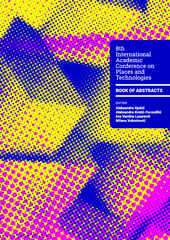Приказ основних података о документу
Shaping a better future: contextual learning and teaching of structural design in the process of architectural education
| dc.contributor | Đukić, Aleksandra | |
| dc.contributor | Krstić-Furundžić, Aleksandra | |
| dc.contributor | Vaništa Lazarević, Eva | |
| dc.contributor | Vukmirović, Milena | |
| dc.creator | Nenadović, Aleksandra | |
| dc.date.accessioned | 2024-02-19T09:11:49Z | |
| dc.date.available | 2024-02-19T09:11:49Z | |
| dc.date.issued | 2023 | |
| dc.identifier.isbn | 978-86-7924-338-6 | |
| dc.identifier.uri | https://raf.arh.bg.ac.rs/handle/123456789/1975 | |
| dc.description.abstract | An integrated building design requires the intensive early collaboration of architects with other disciplines in order to respond to sustainability requirements. Therefore, the education of architects should enable acquiring knowledge and skills essential to function effectively in an interdisciplinary team in practice. Integrating theoretical and practical knowledge within the course curriculum is one way to accomplish the above. Lecture-based courses in structural design within the Undergraduate Studies of Architecture at the University of Belgrade combine theoretical and practical knowledge within the traditional learning model by applying theoretical knowledge to individual non-contextual problem-solving. In the final year of the study, structural design learning is based on contextual problem-solving in teams in the studio, within which buildings and their structures are designed following sustainability requirements. This paper aims to present the applied approach of a combination of two models of learning, individual non-contextual and team contextual, and to assess, using surveys, the influence of applied learning method on the development of cognitive abilities, knowledge, skills, and motivation of architecture students, focusing the contribution of early project-based learning. A total of 230 final-year undergraduate architecture students participated in the survey. The analysis of the survey showed that the applied approach of early team contextual learning in the field of structural design contributes to the development of critical and creative thinking, understanding of the meaning of the subject matter, development of research and analysis, organizational, communication, independent learning and teamwork skills, and motivation to the acquisition of new knowledge and self-engagement. The above indicates the need for constant improvement of the architectural education methodologies and processes to respond to growing complex requirements in practice oriented towards sustainability. | sr |
| dc.language.iso | en | sr |
| dc.publisher | University of Belgrade - Faculty of architecture | sr |
| dc.relation | info:eu-repo/grantAgreement/MESTD/Technological Development (TD or TR)/36008/RS// | sr |
| dc.rights | openAccess | sr |
| dc.source | Keeping up with technologies to imagine and build together sustainable. inclusive, and beautiful cities : book of abstracts / 8th International Academic Conference on Places and Technologies, Belgrade | sr |
| dc.subject | Integrated design | sr |
| dc.subject | Architect education | sr |
| dc.subject | Structural design | sr |
| dc.subject | Contextual learning | sr |
| dc.subject | Competency development | sr |
| dc.title | Shaping a better future: contextual learning and teaching of structural design in the process of architectural education | sr |
| dc.type | conferenceObject | sr |
| dc.rights.license | ARR | sr |
| dcterms.abstract | Ненадовић, Aлександра; | |
| dc.rights.holder | Aleksandra Nenadović | sr |
| dc.citation.spage | 81 | |
| dc.citation.epage | 81 | |
| dc.identifier.fulltext | http://raf.arh.bg.ac.rs/bitstream/id/6169/ContextualLearning.pdf | |
| dc.identifier.rcub | https://hdl.handle.net/21.15107/rcub_raf_1975 | |
| dc.type.version | publishedVersion | sr |

